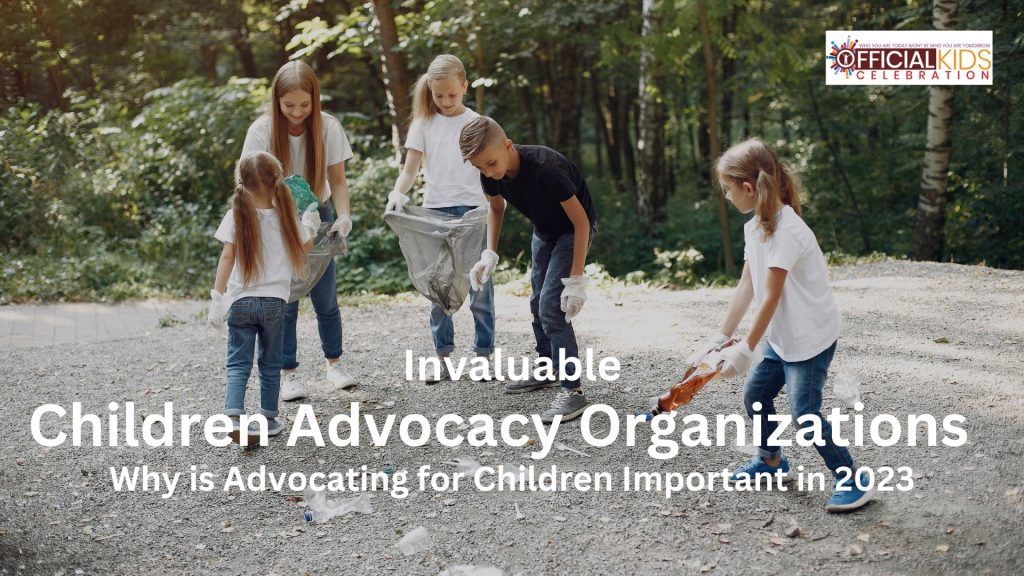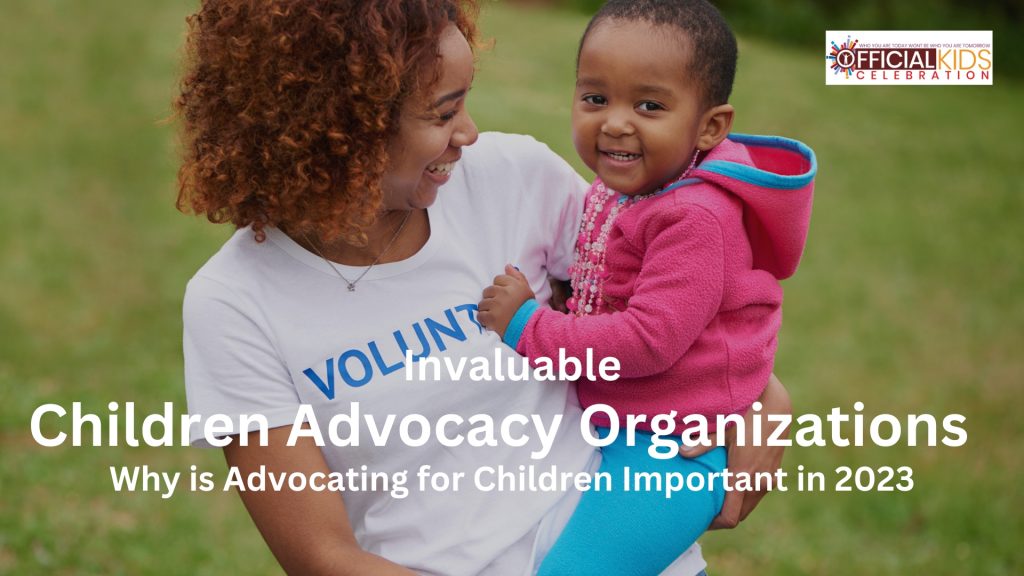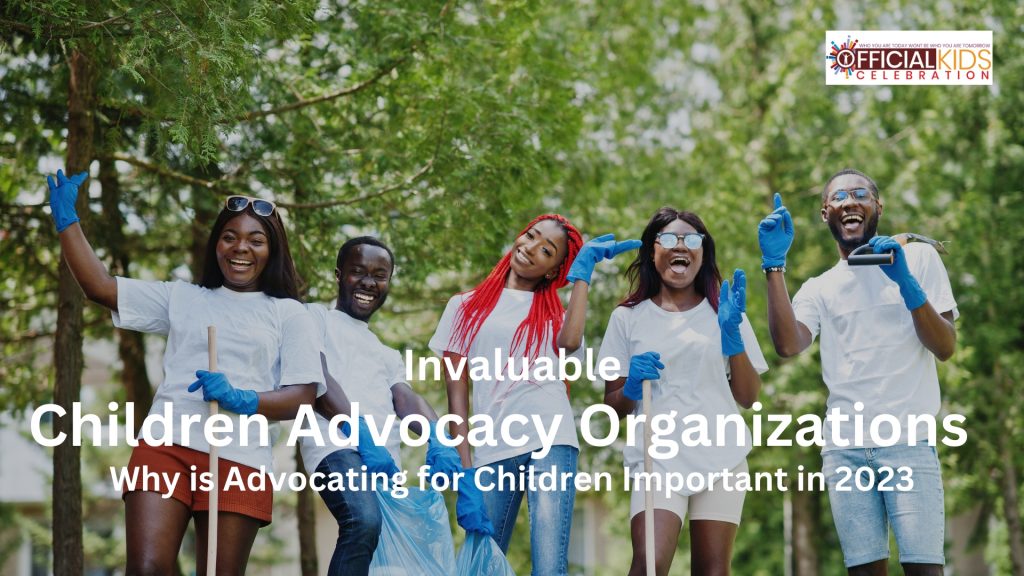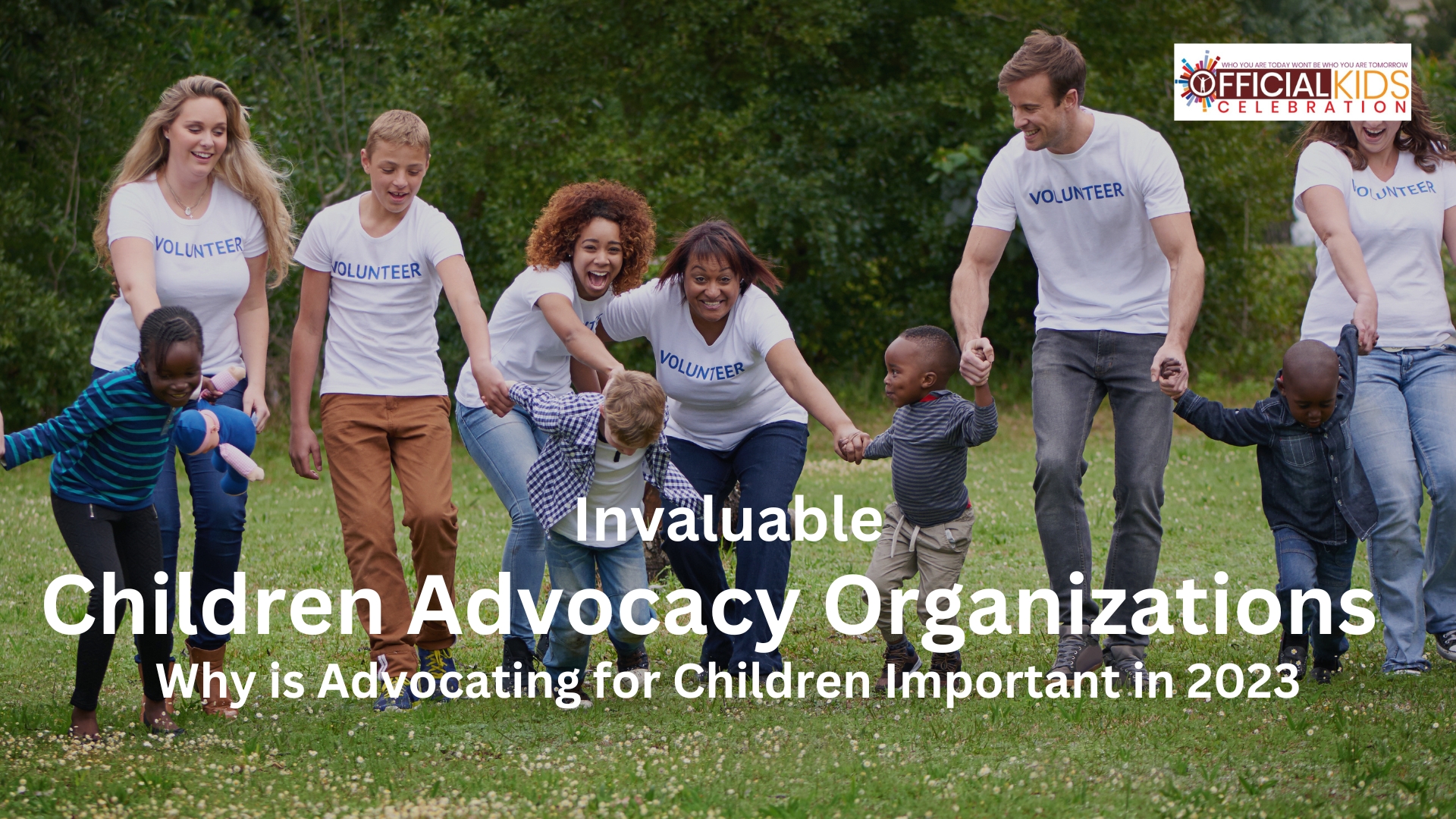Why is Advocating for Children Important?
Children’s advocacy refers to activities and initiatives undertaken to speak up for the rights and well-being of children. It is a multifaceted approach that involves promoting and protecting children’s rights, ensuring their voices are heard, and prioritizing their welfare.
Children’s advocacy is an important part of ensuring that our youngest members of society have a voice regarding their rights and needs. By advocating for children, organizations, individuals, or communities can work together to ensure kids have the appropriate resources and protection they require to thrive. Whether providing food, shelter, medical care, education, or other services, children’s advocacy ensures that our little ones have a better future.
Child Advocacy is also a way to ensure that children’s rights are respected, and their perspectives are taken into account in making decisions involving them. This includes providing access to legal aid for those who require it and protecting children from abuse and exploitation. By standing up for the rights of our children, we can ensure that they can reach their full potential.
Ultimately, child advocacy is about more than just rights- it is about creating a better future for our kids by advocating on their behalf and ensuring that they have access to essential resources and services that will allow them to lead healthy and productive lives. By working together, we can create a world where all children have access to the resources and protection they need to thrive and live happy, fulfilling lives.
“We must always take sides. Neutrality helps the oppressor, never the victim. Silence encourages the tormentor, never the tormented.” ― Elie Wiesel

Raising Awareness
Child advocacy is also about raising awareness of the issues that affect our youngest members of society, such as poverty, gender inequality, and lack of access to education. Educating others about these issues can help create a better future for our children. Through awareness campaigns, advocacy groups and individuals can bring attention to the plight of kids in need and push for change on their behalf.
There are several effective ways to raise awareness about child advocacy.
- Social Media Campaigns: In the digital age, platforms such as Facebook, Twitter, Instagram, and LinkedIn can be vital tools for spreading awareness. By sharing informative posts, infographics, or videos, advocates can reach a broad audience and spark meaningful discussions about the needs and rights of children.
- Educational Workshops and Seminars: These can be arranged in schools, community centers, and other public spaces. Here, experts can deliver talks on children’s rights, the importance of advocacy, and ways individuals can contribute to the cause.
- Fundraising Events: Events such as charity runs, bake sales, or auctions can do double duty by raising both funds for advocacy efforts and awareness about the issues children face.
- Collaboration with Influencers: Partnering with celebrities or influencers with large followings can help spread the message to a broader audience.
- Public Demonstrations: Organizing peaceful protests or marches can draw public attention to the cause and pressure policymakers into action.
- Engaging with Media: Advocates can write op-eds, give interviews, or host press conferences to disseminate their message through newspapers, radio, and TV.
Each method can raise awareness about children’s rights and the importance of advocacy in upholding these rights.
Advocacy for Children can be achieved by supporting policies and legislation favoring children’s rights, raising public awareness about children’s issues, connecting children to essential resources and services, and campaigning for societal change.
Organizations
Organizations play a crucial role in supporting children’s advocacy, implementing numerous strategies to ensure the well-being and rights of children. They provide direct services such as shelter, education, healthcare, and counseling for needy children. They also run programs specific to the unique needs of different groups of children, including those with disabilities, those from disadvantaged backgrounds, or those in foster care.
Moreover, organizations often advocate policy, pushing for laws and regulations that protect children and promote their interests. They research and gather data on children’s issues, using their findings to influence policymakers and the public. They might draft legislation, lobby government officials, or participate in legal proceedings to advocate for children’s rights.
Furthermore, organizations often collaborate with other entities — including schools, hospitals, nonprofits, and businesses — to create a support network for children. They might also spearhead public awareness campaigns, using various mediums to educate the public about children’s issues and what they can do to help.
Finally, many organizations offer opportunities for individuals to get involved in advocacy, whether through volunteering, donating, or participating in events and campaigns. Doing so empowers others to join the fight for children’s rights and well-being.

Advocacy Organizations
Several key children’s advocacy organizations play a significant role in advocating for the rights and welfare of children. Here are some of them:
- Children’s Defense Fund (CDF): A leading national voice for children, focusing on child poverty, health, education, and immigrant families. They aim to ensure every child a Healthy Start, a Head Start, a Fair Start, a Safe Start, and a Moral Start in life and successful passage to adulthood with the help of caring families and communities.
- Association for Child Education International (ACEI): ACEI promotes innovative solutions to education challenges and inspires action that creates positive, sustainable futures for children and youth worldwide.
- Stand for Children: Stand for Children is a non-profit education advocacy organization ensuring all students receive a high-quality education.
- Children’s Rights: This organization fights for the rights of abused and neglected children in the United States. They use the law to bring about meaningful reform.
- National Children’s Alliance (NCA): The NCA is a professional membership organization dedicated to helping local communities respond to allegations of child abuse effectively and efficiently.
- American Professional Society on the Abuse of Children: This organization is dedicated to improving the response to child abuse and neglect through interdisciplinary professional collaboration.
- National Children’s Advocacy Center (NCAC): The NCAC models, promotes, and delivers excellence in child abuse response and prevention through service, education, and leadership.
- Alliance for Children’s Rights: This organization provides free legal services and advocacy for Los Angeles caregivers, adoptive parents, and children and teens.
- National Coalition For Child Protection Reform: The NCCPR works to make the child protection system better serve America’s most vulnerable children by trying to change policies concerning child abuse.
Advocates for children can be individuals, organizations, or institutions dedicated to creating a better and safer world for children.
How do I get involved?
There are various ways one can get involved with children’s advocacy organizations:
Volunteering: Many organizations rely on the help of volunteers for various tasks, including administrative work, event planning, fundraising, and direct service. You can look for opportunities on the organization’s website or contact them directly.
Donating: Financial contributions are always appreciated. Donations can help fund programs and services, support advocacy efforts, and cover operational costs. Some organizations also accept in-kind contributions, such as books, toys, clothing, or school supplies.
Participating in Events: Attend fundraisers, workshops, awareness campaigns, or other events hosted by the organization. These events can be a great way to learn more about the cause, show your support, and connect with like-minded individuals.
Joining Advocacy Campaigns: Many organizations lead initiatives advocating for policy changes or raising awareness about particular issues. You can get involved by signing petitions, writing to your representatives, or sharing information on social media.
Working: If you’re interested in a career in advocacy, consider applying for a job with a children’s rights organization. Positions may range from caseworkers and researchers to communications specialists and policy advisors.
Remember, every effort counts in the fight for children’s rights, and there are many ways to contribute, regardless of your skills or resources. By getting involved, you can make a tangible difference in the lives of children and help ensure their future is bright and full of opportunities.
Involvement in children’s advocacy is paramount for a multitude of reasons. Firstly, it amplifies the voice of the children, who often lack the power or platform to express their concerns and needs. Secondly, public engagement in advocacy actions can put pressure on key decision-makers and influencers to prioritize children’s rights and well-being, potentially leading to significant policy and societal changes.
Additionally, individual involvement can help to foster a community-wide culture of respect and care for children’s rights. It raises awareness about the predicaments children face, educating members of society to recognize these issues and take action.
By getting involved, individuals can directly impact the lives of children, whether through volunteering, donations, or other forms of support. Such engagements aid children immediately and contribute to long-term solutions for systemic issues affecting them.

“Advocacy is empathy, compassion, and community at work.”- Janna Cachola.
Official Kids Celebration
At Official Kid’s Celebrations, we are committed to ensuring the rights and welfare of children by creating a platform to celebrate their individuality and achievements. Our organization organizes various events, including birthday parties, achievement celebrations, and cultural festivities, which allow children to enjoy their special moments and build positive memories. We believe in recognizing each child’s unique talents and personal growth, which we celebrate through personalized events.
We are dedicated to broader advocacy work for children’s rights. We use the visibility and funds generated through our events to support initiatives that promote children’s welfare and rights, partnering with other organizations in the field to maximize our impact. By participating in our events, individuals contribute to a child’s joy and support the more significant cause of children’s rights and advocacy.
Anyone interested can explore our upcoming events, learn about our advocacy work, and find ways to get involved, whether by attending an event, donating, or volunteering their time. Join us in celebrating children and advocating for their rights and well-being.




